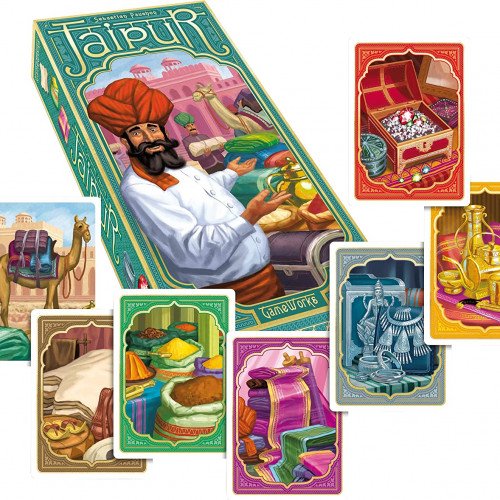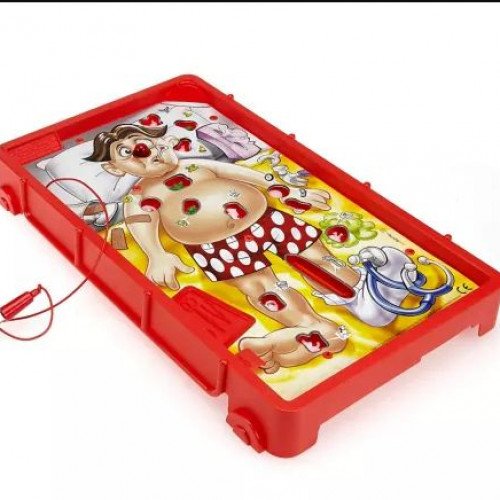JAIPUR VS OPERATION

JAIPUR
Jaipur is a card game for two players. It was created by Sébastien Pauchon in 2009 and published by Asmodee. Players assume the roles of powerful merchants in Jaipur, the capital of Rajasthan. The aim is to receive two "seals of excellence" and be invited to the court of the Maharaja. The game focuses on buying, exchanging, and selling at better prices, all while keeping an eye on both your camel herds. Overall, the board game has received favorable reviews, many acknowledging its simplicity, yet sufficient depth. Shut Up & Sit Down have suggested that "great game for seasoned vets but also something you could easily introduce to people who don’t play a lot" whereas iSlayTheDragon said "Jaipur is a blast to play". Board Game Land has suggested that the game was "one of the top card games for couples". Jaipur has continued to be a popular game with recommendations into 2020 as well as being part of the Mind Sports Olympiad 2020 competition.
Statistics for this Xoptio

OPERATION
Operation is a battery-operated game of physical skill that tests players' hand-eye coordination and fine motor skills. The game's prototype was invented in 1964 by John Spinello, a University of Illinois industrial design student at the time, who sold his rights to the game to renowned toy designer Marvin Glass for a sum of US$500 and the promise of a job upon graduation (a promise that was not upheld). Initially produced by Milton Bradley in 1965, Operation is currently made by Hasbro, with an estimated franchise worth of US$40 million. The game is a variant on the old-fashioned electrified wire loop game popular at funfairs. It consists of an "operating table", lithographed with a comic likeness of a patient (nicknamed "Cavity Sam") with a large red lightbulb for his nose. This could be a reference to classic cartoons, where ill characters' noses turn red. In the surface are a number of openings, which reveal cavities filled with fictional and humorously named ailments made of plastic. The general gameplay requires players to remove these plastic ailments with a pair of tweezers without touching the edge of the cavity opening. Operation includes two sets of cards: The Specialist cards are dealt out evenly amongst the players at the beginning of the game. In the U.S and Australian version, players take turns picking Doctor cards, which offer a cash payment for removing each particular ailment, using a pair of tweezers (dubbed “Electro Probe” in earlier versions) connected with wire to the board. Successfully removing the ailment is rewarded according to the dollar amount shown on the card. However, if the tweezers touch the metal edge of the opening during the attempt (thereby closing a circuit), a buzzer sounds, Sam's nose lights up red, and the player loses the turn. The player holding the Specialist card for that piece then has a try, getting double the fee if he or she succeeds. Since there will be times when the player drawing a certain Doctor card also holds the matching Specialist card, that player can purposely botch the first attempt in order to attempt a second try for double value. The winner is the player who holds the most money after all the ailments are extracted. Subsequent later games removed the money and cards, and the winner of these editions is the player who removes the most ailments.